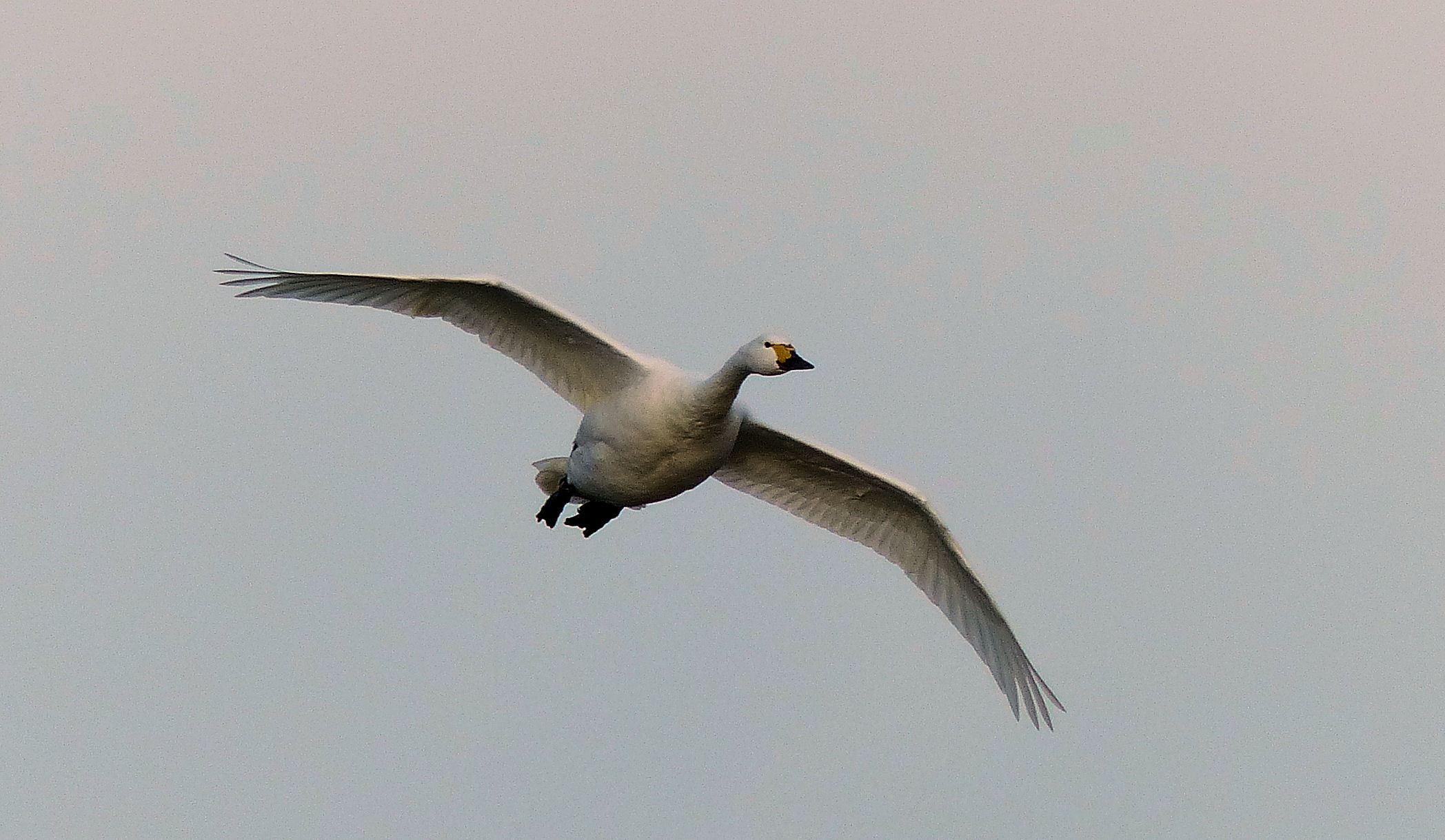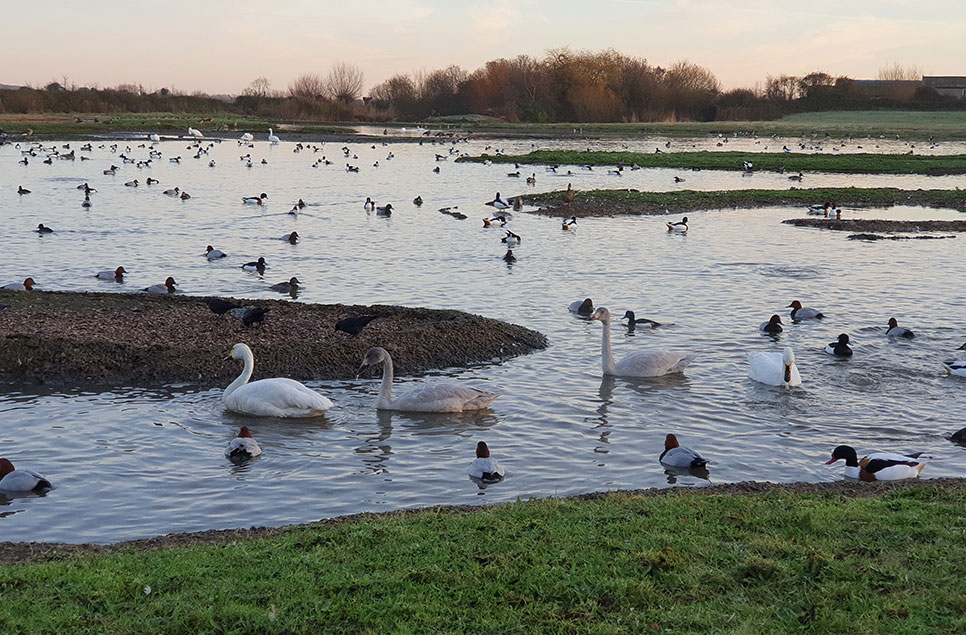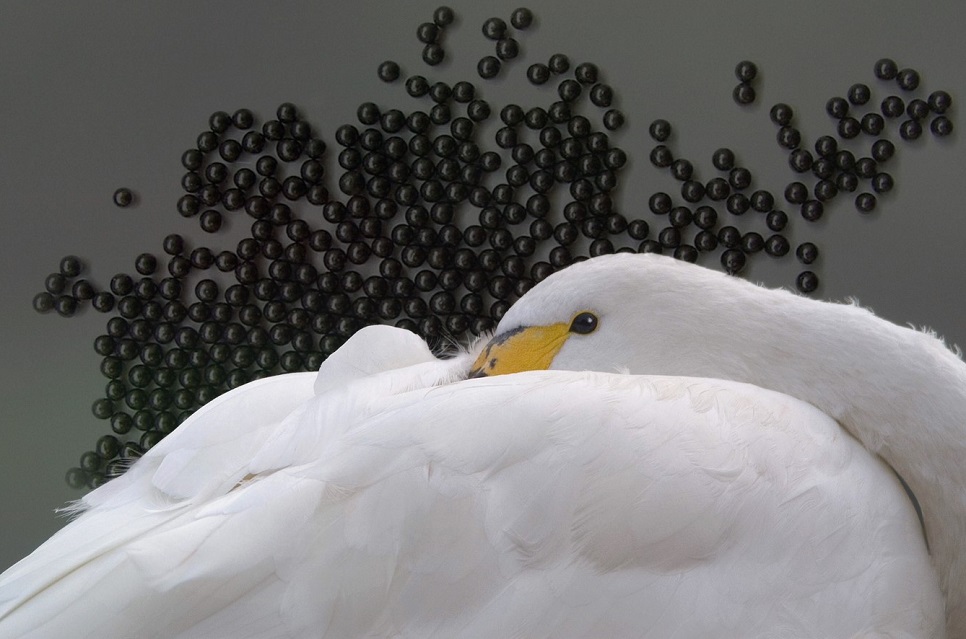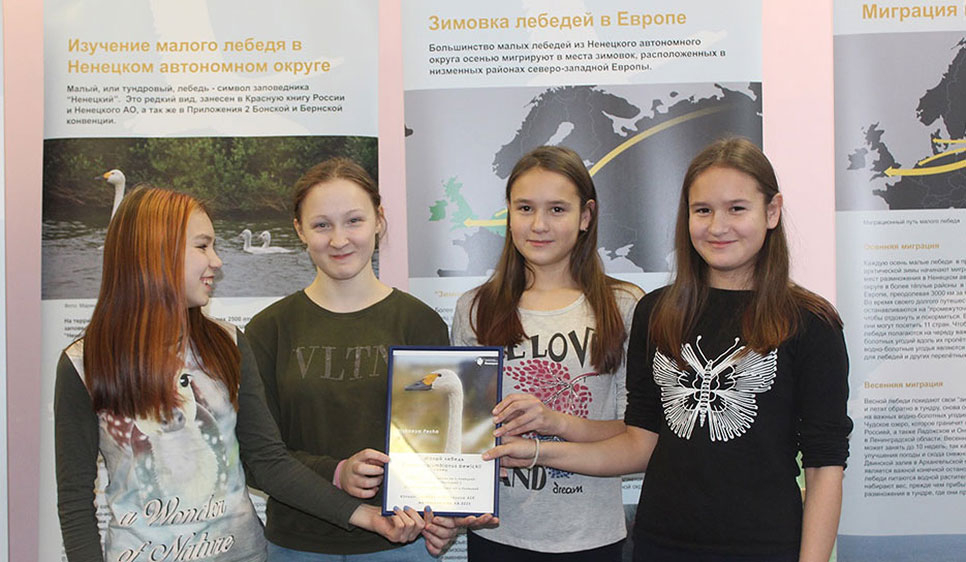Please note: water will be off in Welly Boot Land today (2 May), the play area will be open as usual. The Canoe Safari is also closed due to weather.
Old faces
Here at Slimbridge, we record each individual Bewick’s swan by its distinct black and yellow bill pattern as part of a long-term ecological study of the species which was initiated by WWT’s founder Sir Peter Scott more than 50 years ago. Bewick’s swans are very site faithful and it is rather special when you spot a returning swan. As Steve and I scan the lake every morning, we are always hoping to see a familiar face in the crowd.
One of those faces is a swan called Riddler who has wintered on the reserve since first visiting as a cygnet with his parents in 1991! This month, he skimmed on to the lake and settled in for his 26th winter. Since being fitted with a uniquely coded ring (which reads YXU), we have been able to follow Riddler’s life as he has migrated between the Russian arctic and Gloucestershire. The swans and other migratory wildfowl rely on a chain of important wetland sites along their flyway for resting and re-fuelling on migration. Riddler is no exception, having been spotted at 47 of these sites over the years!

Recent mild weather has slowed the eastwards migration of Bewick’s swans to the UK with numbers slowly climbing to 1,218 on the Ouse Washes in Norfolk (recorded by WWT/RSPB on 5 December) and 114 at Slimbridge today. A total of 161 Bewick’s swans have visited Slimbridge so far this winter which is close to the five average (165 swans) for the reserve at this stage of the winter.
There has been more movement on the continent with swans continuing to arrive at lakes on the Dutch-German border. More than 6,500 Bewick’s are now in this ‘borderlakes’ area according to Dutch ornithologists Martin Jansen and Wim Tijsen.
Our very own ‘human swan’ Sacha Dench has also safely arrived back at Slimbridge just in time for Christmas following her 7,000km migration from the Russian arctic! See here for more news!


